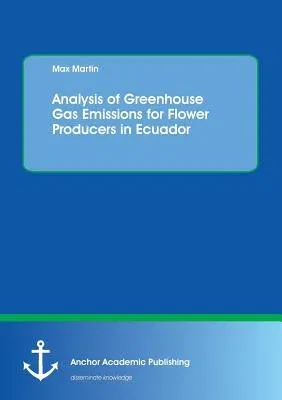The goal of this study is the calculation of greenhouse gas emissions
which occur during the production of Ecuadorian Flowers. Emissions are
considered beginning with the production of raw materials up to the
point where the flowers are sold to the final wholesale. This book
describes the current status of international standardisation with their
relevance to the calculation. Currently there are no official
regulations for CO2 calculations. Because most of the flowers are sold
to Europe the Life Cycle Assessment (LCA) regulations ISO 14040 ff have
been applied for the methodology and the creation of the system model.
The importance of this standard has been pointed out as it will be the
basis for upcoming European CO2 regulations. Nowadays a widely accepted
method is the greenhouse gas protocol which has been used partly for the
calculations because only few sectors (e.g. transportation) are covered.
Further on the model of flower production is introduced. The model
includes all processes and the system boundaries. Significant factors
contributing to the greenhouse gas emissions are defined as airfreight
of flower to the final market, consumption of electricity and usage of
fertilizers on the farm. The process of collecting data is another
subject of this study, including the last audit data from the Flower
Label Program (FLP) as well as independently created inquiries and
visits on the pilot farms. The calculation of CO2 emissions is
comprised. The sources of the emissions factors are described in the
beginning, which are mostly extracted from LCA software. Furthermore
this book proposes the next steps on the way to CO2 neutral flowers.
Firstly the calculation has to be certified by an independent
organisation. Subsequently a decision on CO2 compensation has to be
taken. The purchase of CO2 certificates from official or voluntary stock
exchanges was recommended because self managed CO2 projects need
start-up time. The last step is the marketing of the new product,


